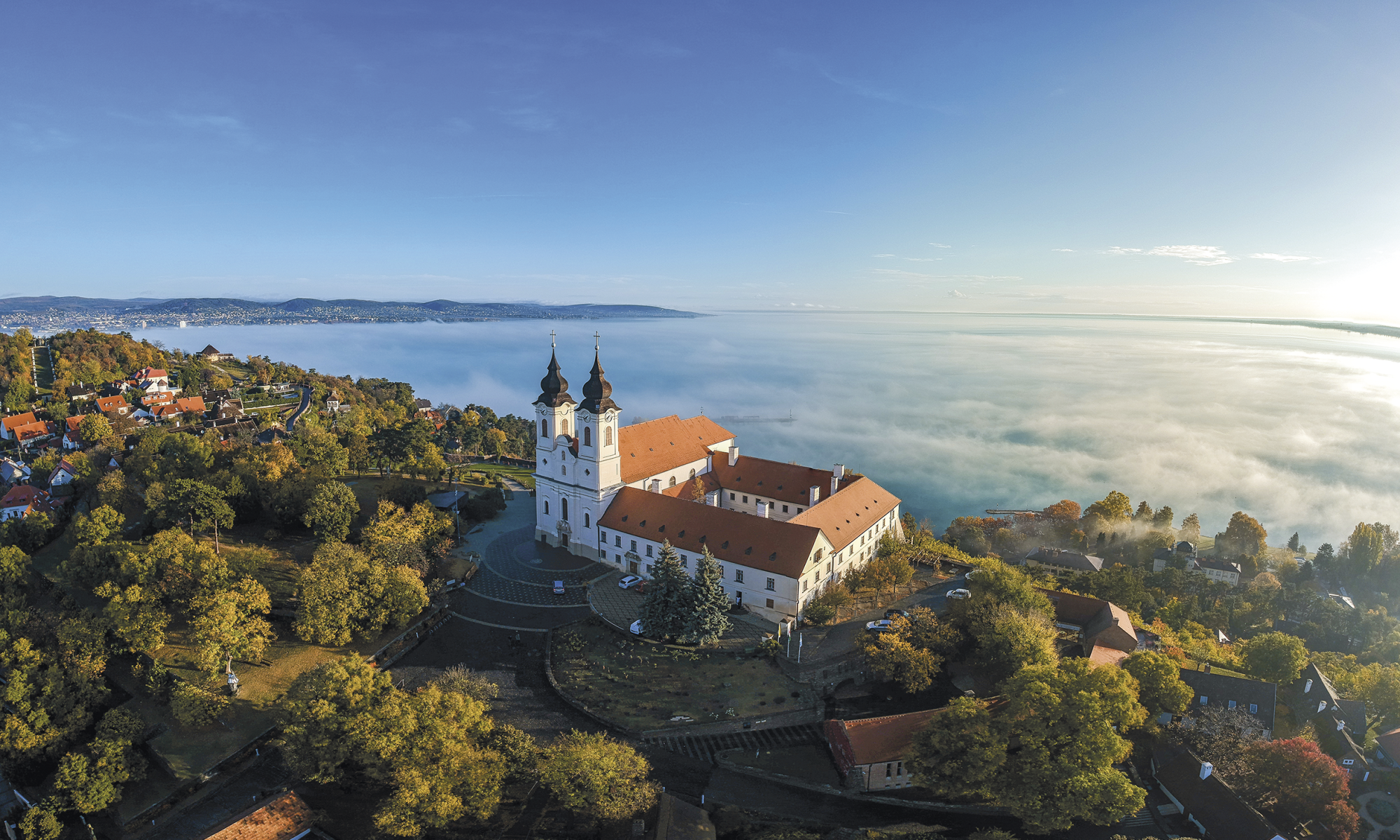A community of monks has lived in Tihany since Andrew I founded the Abbey in 1055. The monasteries of Western church at that time all followed the Rule of St Benedict (Italy, 480–547), which was thus written to shape the way of life of existing closed Christian communities seeking God rather than to found an order. Early monastic communities were not set up for specific purposes. The life of the monks was defined by common prayer, contemplative reading and work. The storms of history and political pressures caused monastic life to be suspended in Tihany on several occasions – in the early sixteenth century, in 1787 and in 1950.
After the political transition in the 90’s, the opportunity arose for monastic life to be revived in places other than the school-based centres of Pannonhalma and Győr. Thus places for retreat and service were established in Bakonybél and Tihany. The Benedictine Abbey of Tihany became an independent monastery within the Hungarian Benedictine Congregation in 2012. The current community of twelwe is led by the Prior. The youngest brother is 26 years old and the oldest is 90. The older members are also very active.
‘Are you really seeking God?’ is the most important question for those seeking to belong to the community. To become a monk is almost to join a family: the community is a base for carrying out all kinds of tasks and meeting the challenges of modern life. A Benedictine monastery is self-supporting, and the monks must to be able to live from their own work. Their handicraft and intellectual activities both inside and outside the monastery must be in the service of God.
Our specific tasks are to carry out pastoral work in Tihany and the nearby towns (Balatonfüred, Balatonszőlős, Aszófő, Örvényes, Balatonudvari and Balatonakali); receive guests and pilgrims; lead spiritual exercises for students and adults; arrange talks, exhibitions and concerts; teach religious studies and general subjects in the local Benedictine primary school; make medicinal teas and candles; and grow herbs on the bank of Belső Lake in Tihany. We are also in direct contact with the Archdiocese of Veszprém and assist in pastoral work.
Nonetheless, our aim is not to make up for the lack of manpower in pastoral work but to have an authentic presence in our own monastery. Strengthening the community is the greatest task. Nobody is good at everything, but everybody is good at something. The members of the community have various faculties and charisms. Each must transmit the message of the gospel by his own gifts. ‘Seek after peace and pursue it!’ admonishes our Rule.
We hope that the people from all over the country who come to our pastoral, cultural and touristic events will experience homeliness, kindness and a sense of wellbeing when they meet us. In addition to organized events, it is up to all of us, when meeting with people and in the course of our work, to give an authentic, evangelical, ‘good’ impression of monasticism and of our renewing Benedictine community of Tihany.
